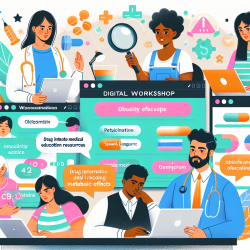In the ever-evolving landscape of therapeutic practices, it's crucial for practitioners to stay informed about regulatory models that can impact the tools and methods they use. The research paper "Vape Club: Exploring Non-Profit Regulatory Models for the Supply of Vaporised Nicotine Products" offers valuable insights into alternative regulatory frameworks for Vaporised Nicotine Products (VNPs), commonly known as e-cigarettes. This blog will explore how these models can be implemented in school therapy programs to improve outcomes for students.
Understanding Non-Profit Regulatory Models
The paper examines two primary non-profit regulatory models for VNPs:
- Private Clubs
- Special Access Schemes (SAS)
Private Clubs
Private clubs for VNPs operate similarly to cannabis social clubs. These clubs are non-profit organizations funded through membership fees and donations. They provide a controlled environment where members can access and use VNPs. For schools, establishing such a club could offer a structured and supportive setting for students who use VNPs, ensuring they do so safely and responsibly.
Special Access Schemes (SAS)
The SAS model allows health practitioners to supply unregistered therapeutic goods to patients on a case-by-case basis. This model could be adapted for school settings, where authorized personnel can provide VNPs to students who need them for therapeutic purposes. This ensures that the use of VNPs is monitored and controlled, minimizing potential risks.
Benefits of Implementing These Models in Schools
Adopting these non-profit regulatory models in school therapy programs can offer several benefits:
- Controlled Environment: Both models provide a regulated setting for VNP use, ensuring that students use these products safely.
- Support Network: Like cannabis social clubs, private VNP clubs can offer a support network for students, helping them navigate the challenges of using VNPs responsibly.
- Reduced Stigma: Implementing these models can help reduce the stigma associated with VNP use, making it easier for students to seek help and support.
Encouraging Further Research
While these models offer promising frameworks, it's essential to conduct further research to understand their effectiveness fully. Practitioners should:
- Engage in pilot programs to test the feasibility of these models in school settings.
- Collaborate with researchers to gather data on the outcomes of these programs.
- Advocate for policy changes that support the implementation of these models in schools.
By staying informed and proactive, practitioners can ensure they are using the most effective and safe methods for their students.To read the original research paper, please follow this link:
Vape Club: Exploring Non-Profit Regulatory Models for the Supply of Vaporised Nicotine Products.










